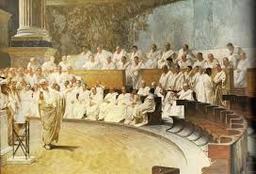
Ancient Greece - The Rise of Democracy
Quiz by Erin Mulligan
Feel free to use or edit a copy
includes Teacher and Student dashboards
Measure skillsfrom any curriculum
Measure skills
from any curriculum
Tag the questions with any skills you have. Your dashboard will track each student's mastery of each skill.
With a free account, teachers can
- edit the questions
- save a copy for later
- start a class game
- automatically assign follow-up activities based on students’ scores
- assign as homework
- share a link with colleagues
- print as a bubble sheet
12 questions
Show answers
- Q1What is a monarch?A country, business, etc., that is controlled by a small group of people.A person (such as a king or queen) who rules a kingdom or empire.A ruler who has complete power over a country and who is cruel and unfair.120s
- Q2What is a tyrant?A form of government in which people choose leaders by voting.A ruler who has complete power over a country and who is cruel and unfair.A country, business, etc., that is controlled by a small group of people.120s
- Q3What is an oligarchy?A person (such as a king or queen) who rules a kingdom or empire.A form of government in which people choose leaders by voting.A country, business, etc., that is controlled by a small group of people.120s
- Q4What is a democracy?A ruler who has complete power over a country and who is cruel and unfair.A form of government in which people choose leaders by voting.A person (such as a king or queen) who rules a kingdom or empire.120s
- Q5In ancient Greece, who was allowed to participate in the assembly?slaves, women, childrenmen, native born, military trainingmen, women, native born120s
- Q6What is an aristocrat?A wealthy and powerful person.A regular person who was a citizen.A wealthy person who has no power.120s
- Q7Why did the era of monarchy end in ancient Greece?The king decided to give his power to the wealthy aristocrats.The people voted to end the monarchies.The aristocrats became more powerful than the kings because they had more money.120s
- Q8Under the rule of the oligarchs, the rich became richer and the poor became _______.richerpoorer120s
- Q9What was the biggest difference between a monarch and a tyrant?The tyrant did not have a legal right to rule.The tyrant shared power with other tyrants.The tyrant's children would take control after the tyrant's death.120s
- Q10What was the first city-state to have a democracy?AthensThebesSparta120s
- Q11What as the group of citizens who meet and participated in the democracy called?clustercity-stateassembly120s
- Q12What does having a 'direct democracy' mean?People may vote for representatives who then decide issues on behalf of the people.Every citizen is allowed to vote on every issue.120s
